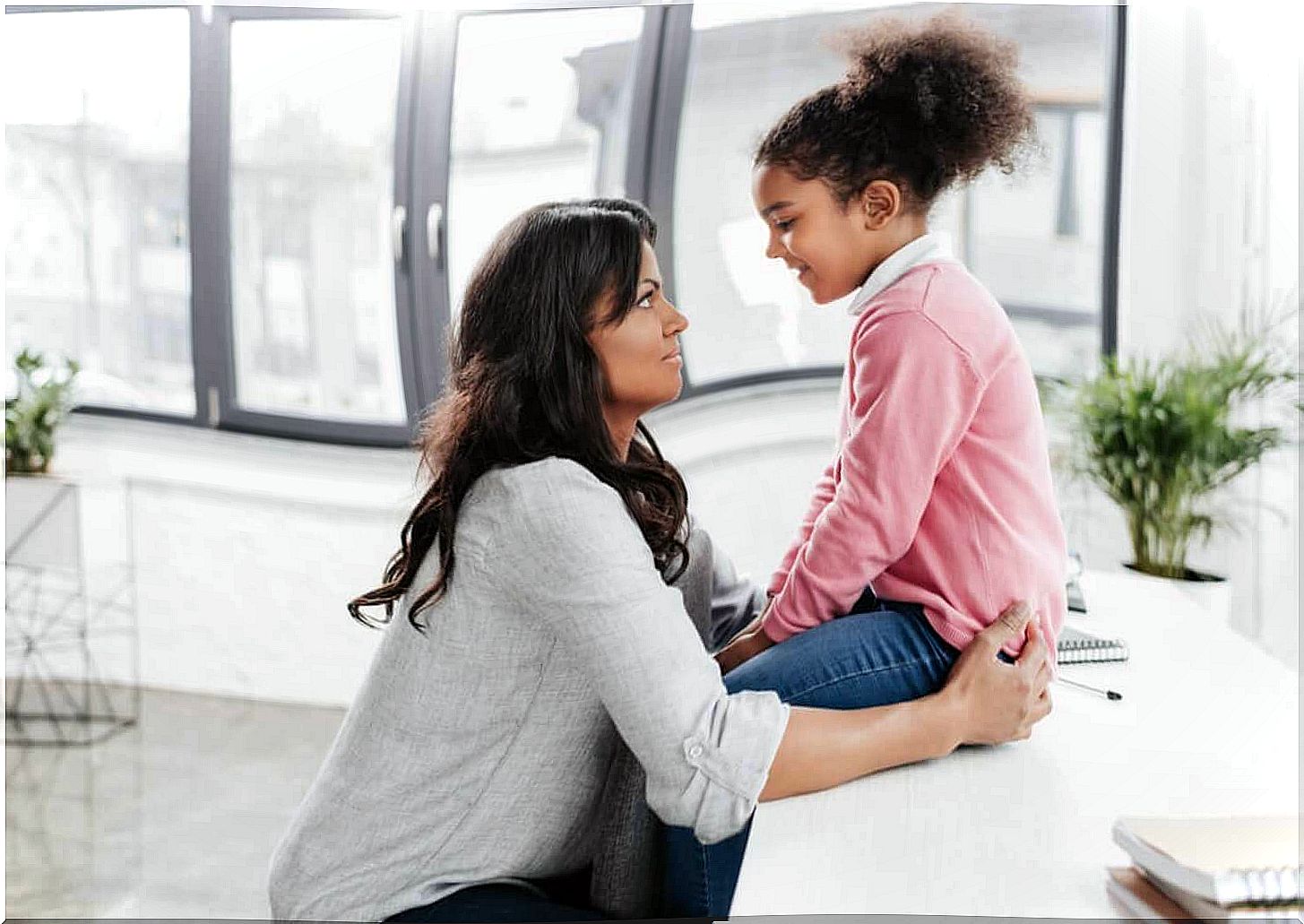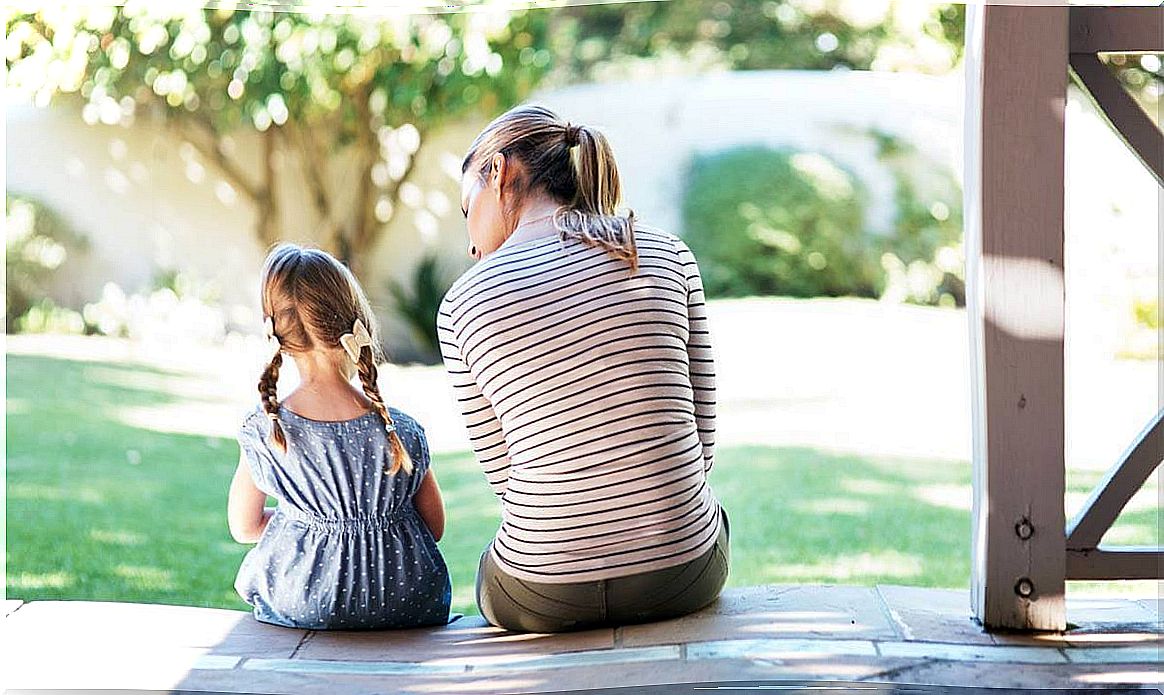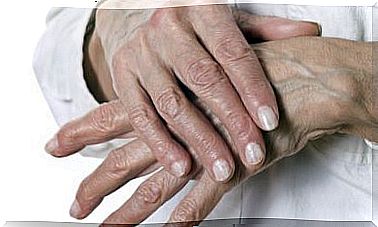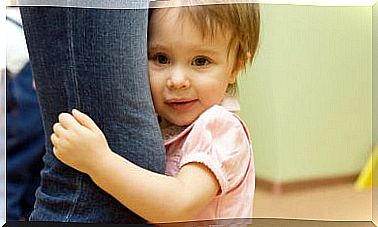The Value Of Teaching Children To Say “please”, “thank You” Or “good Morning”
Saying thank you, asking for something please or saying good morning are signs of sensitivity and respect towards the other. Therefore, the value of teaching children these basic guidelines is presented as an essential key for anyone who exercises the role of educator.
It is possible that you yourself are “of that generation.” The one who was firmly taught that people are considered and that it is necessary to treat with affection in order to be treated in a good way as well. Therefore, if we promote this type of customs in the little ones, we will get them to set an example and, in addition, to promote more humane social environments.
The formula for creating a fuller tomorrow involves details like these. Believe it or not, small gestures create entire universes. We invite you to reflect on it below.
The value of teaching children to communicate
Saying “please”, “thank you” or “good morning” is not just an act of courtesy. Rather, it is a way of getting children to think and move from the usual egocentricity of early childhood to the recognition of the other and their needs.
Moral development in children

One of the best known authors when it comes to talking about the moral development of children was undoubtedly Lawrence Kohlberg. Although there may be certain differences from child to child and, even, from brother to brother, the usual thing is to follow this evolution in terms of awareness of respect, rules and recognition of the other.
- During early childhood, between 2 and 5 years, the child is governed only by rewards and punishments. Understand that there are rules that you must follow in order to gain affection and to avoid potential scolding.
- In the second phase, the golden age occurs. This takes place between the ages of 6 and 9 and in it, that attention to oneself is gradually put aside.
- Later, between the ages of 8 and 10, the child is already capable of understanding that common good, that respect to offer to others and which then returns to oneself. For this reason, it is frequent that, at these ages, they come out in defense of their friends and brothers and that they become aware of what is fair also on a collective level.
- Little by little and with adolescence, young people will acquire their own values. They will become critical of certain issues that they consider inappropriate or abusive.
Courtesy and the Courage to Teach This to Children
When someone offers a four-year-old child a gift, it is common for parents to point out that “What do you say now?” Before this, the son, almost reluctantly and in a low voice, says that another of “thank you.”
It doesn’t matter if we have to repeat it a lot of times. What’s more, there will come a time when you will not only automate it, but you will realize what you achieve.
For example, when he asks for the materials “please” in class, the little one may discover that a classmate offers them to him with a smile. In turn, by expressing appreciation, the other will respond with kindness. All of this fosters powerful connections based on positive emotions.
This transition between giving thanks in an obligatory way until the child himself does it spontaneously and with pleasure is a wonderful process that will affect his life for the better. These gestures add warmth to interactions and also make interactions easier.
The power of respectful parenting
The term “respectful parenting” refers to a concept coined by authors such as William Sears or John Bowlby.

This interesting trend emphasizes the need to promote the child’s natural adaptation to their environments, as well as to foster their empathy. Such an emotional bond will allow you to better understand the world, people, and yourself. Thus, respectful parenting is one in which a healthy attachment is fostered between parents and children. There is physical closeness, hugs, caresses, pleasant words, and continuous communication.
Under these keys, education is based on positive reinforcement. Actions such as thanking, asking please, being patient and accepting the rhythms and times of children when acquiring knowledge are elements present in this model.
The value of teaching children these simple details
Yet when the child discovers what he gets from being courteous and respectful, he fluently incorporates such acts into his social behavior.
If as educators we take it into account and transmit it as soon as possible, the benefit that future generations will receive will be a constant legacy.
Will you remember the magical expressions of “please”, “thank you” or “good morning”?









